Concerned about the rising trend of one-million-dollar resale HDBs, CNA recently invited me to share a commentary on my views on being prudent when it comes to buying your first home. You can read the full article here (click to head over to CNA’s website). In the meantime, here’s a quick summary of key points I wanted to emphasize:
1. Affordability Is My #1 Criteria
My mother was retrenched during the Asian Financial Crisis. As a result, I grew up watching her stress out over the monthly mortgage and household bills.
In my memories, I remember her going around to borrow money from relatives and friends, just so she wouldn’t have to stop our tuition classes (we had Chinese, abacus and drama then) and still have enough to put food on the table for us.
It wasn’t easy for her, and while we managed to overcome the crisis eventually, it took her several years before she finally repaid her debts.
Even though my husband and I can technically afford to pay more for our first home, we made a deliberate choice not to. With a child on the way, I knew our expenses were bound to increase. So when it came to buying a house, I wanted to avoid having to finance a heavy mortgage that might restrict our future expenses.
2. Keep Your Fixed Expenses Minimal
It is easier to reduce your variable expenses when you want to; the same can’t be said for your fixed liabilities.
A housing mortgage is often the biggest fixed expense for most of us. If we can keep this low, this leaves us with more breathing room for variable expenses.
Consider this scenario: you and your spouse earn $5,000 each, which equates to a combined income of $10,000. At that level, you can easily qualify for a $900,000 three-bedroom executive condominium (EC) or a S$450,000 HDB flat from the government.
The EC has a $3,000 monthly mortgage, which leaves you with $7,000 for other living expenses and retirement savings. If one of you were to suddenly stop working, that falls to just $2,000 for variable expenses.
If you have a child, $2,000 a month might be financially quite tight.
On the other hand, if you picked the HDB instead, your $1,500 monthly mortgage gives you more room for exigencies.
3. Things Can Change Abruptly
Most couples leverage based on their existing income and capped at the regulatory limits. The problem is, your financial circumstances can change anytime. The current pandemic has demonstrated how things can change abruptly – that high-income earner today might be out of a job tomorrow.
That’s why we chose to take a more risk-adverse approach, so we calculated an amount that we would still be able to comfortably finance in the event that our income is disrupted.
Your mortgage liabilities don’t simply go away just because you’ve lost your job.
4. Your Profits May Not Be As Much As You Thought
How does making $1.5 million on a condominium sound?
Looking at the lump-sum gains made on a property can seem like it was a fantastic investment, but if you annualize it, the gains don’t always amount to much.
This was what happened to a seller of a condominium along Amber Road recently. While $1.5 million sounds like a huge sum, it actually works out to be an annualised gain of 5% over 15 years – just slightly higher than the returns on our CPF Special Account.
Investing in the S&P 500 in the same time period would have returned you over 9% instead. If you were a savvy and hardworking stock picker, an investment in Microsoft would have given you a 15% annualised return instead (or 800% in total!).
A property locks up your capital that you could have invested elsewhere. Couples may want to factor in this opportunity cost in your decision-making process.
5. TLDR: Go For What You Can Afford
The peace of mind that comes with knowing I won’t sink under a mountain of debt even if the worst were to happen…is something that money cannot buy.
I’m aware that property can also be structured as an investment, and have learnt from several experts in this field on how to do so. However, like I outlined in the CNA article, at the end of the day buyers will need to manage the emotional stress of financing their own mortgage. And personally, I don’t like having a heavy mortgage liability hanging over my head.
That’s why I chose to be prudent in financing the biggest expense of my life – our very first home.
Read the rest of the article in full here.
With love,
Budget Babe
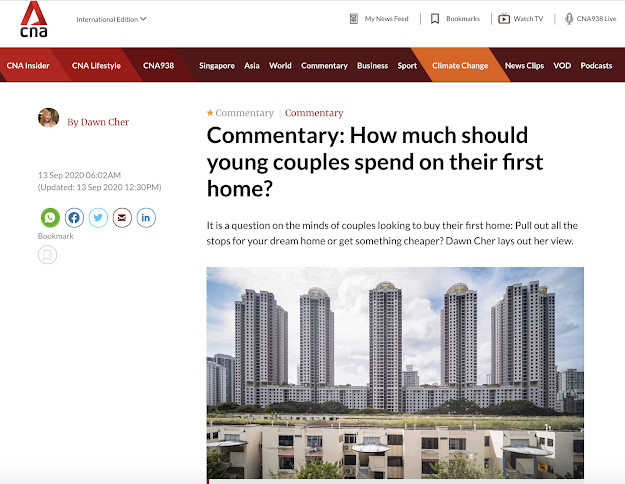


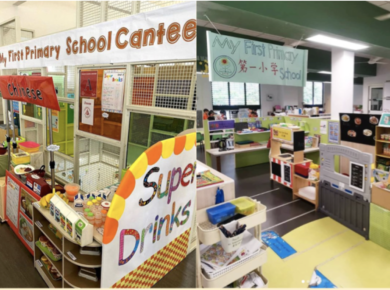
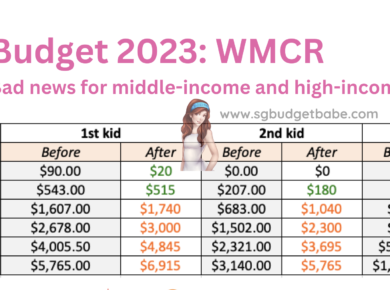
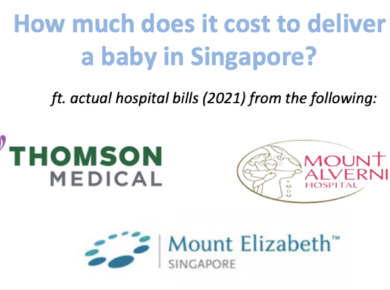

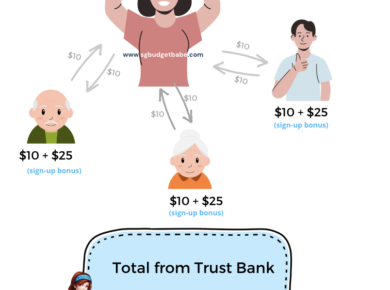
5 comments
& how much usd has depreciated against the sgd in the past 15 years? How can u compare returns of different currency equally
USDSGD depreciated 19% over last 15 yrs.
S&P500 appreciated 174% over same period — and that's excluding dividends.
Don't forget, about 45% of S&P companies' earnings are outside US, so they also gain from USD depreciation.
Plus good companies with sustainable business models will be able to increase their prices over the years.
Of course if you want stability, then nothing beats your POSB savings account & SGS bills (not even notes!).
BB,
I suppose with proximity grant & 1st timer grant, that makes it even cheaper!
However with old flats, wouldn't that require higher than usual replacement of infrastructure stuff like electrical wiring, plumbing and perhaps windows?
Yes, we made use of those grants to lower the upfront costs too 😀 very thankful for the government subsidies we get to enjoy.
You're spot on – we redid the electrical wiring, plumbing, windows and paint. The entire kitchen and toilets were redone as well (I'm overdue on a blog post about my renovation, will do it once my kids are done with their exams this year!) I can't remember how much of the bill these came up to, but I don't remember them being too substantial. Electrical works, for instance, were $5k to $6k.
Thank you Unknown for helping me to respond! 🙂
Comments are closed.